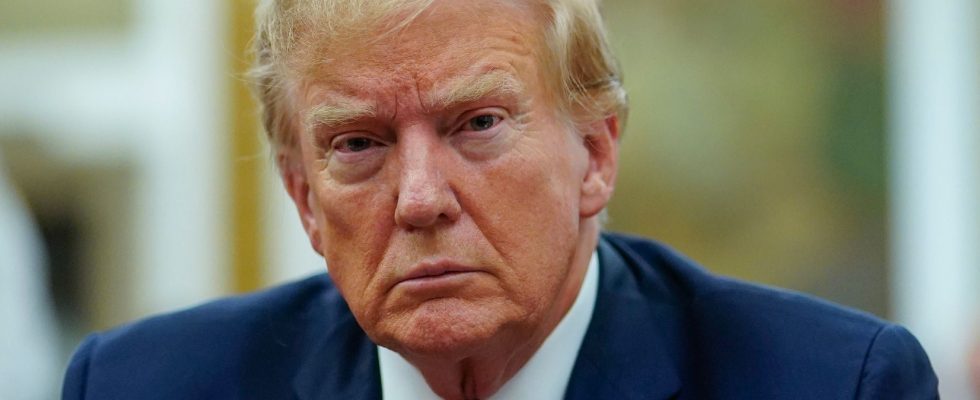Justice today seems to be Donald Trump’s main adversary for the 2024 presidential election, and the former American president seems to have understood this well. Big favorite in the Republican primary to obtain the nomination for the November presidential election but surrounded by business, Donald Trump predicted on Tuesday January 9 “chaos in the country” if the American justice system did not drop the charges against him, after a hearing at the federal appeals court in Washington on his request for criminal immunity as ex-president.
“I think it’s very unfair when a political opponent is prosecuted by the Justice Department, (Democratic President Joe) Biden’s Justice Department,” he told reporters. Citing the unfavorable polls for the latter, also a candidate, he assured that the proceedings against him were political. “There will be chaos in the country […]. This is a very bad precedent and as we said, it will open Pandora’s box.”
The Capitol Insurrection
This legal procedure, one of countless in which Donald Trump is currently engaged, dates back to August 3, when the Washington court indicted him for “conspiracy against the United States” for having tried to overturn the result of the presidential election of 2020. In connection, in particular, with his incitement to the insurrection of the Capitol, on January 6, 2021. Trump then pleaded “not guilty”, and denounced the persecution “of a political opponent”.
This trial is now scheduled to begin on March 4. Except that Trump and his lawyers are now trying to obtain “absolute” criminal immunity from the Washington Court of Appeal for his actions when he was in the White House, based in particular on case law from the Supreme Court 1980s involving civil lawsuits against former President Richard Nixon.
Judge Tanya Chutkan, the one who will preside over the proceedings at his federal trial, had already rejected his request for immunity on December 1, considering that no text protected a former president against criminal prosecution. For its part, in December the Supreme Court rejected the special prosecutor’s request to rule urgently on this question, which would have short-circuited the traditional appeal process and the delays it entails.
The Supreme Court as final judge
This Tuesday, the three judges of the Washington Court of Appeal did not hide their skepticism during the debates in the presence of the person concerned. To one of the judges, Florence Pan, who asked whether sending special forces to assassinate a political opponent or selling presidential pardons fell under these official acts, Trump’s lawyer John Sauer responded in the affirmative. “It would be paradoxical to say that his constitutional duty to ensure faithful respect for the laws authorizes him to violate criminal law,” retorted the President of the Court, Karen Lecraft Henderson.
“There have never before been allegations that a president, through private individuals and using the levers of power, attempted to fundamentally subvert the democratic republic and the electoral system,” argued James Pearce, member of the team of special prosecutor Jack Smith, who is investigating the case.
Enough to arouse the anger of the Trump camp. “Allowing a president to be prosecuted for his official actions would open a Pandora’s box from which this country may never recover,” argued Donald Trump’s lawyer, John Sauer, on Tuesday. He raised the possibility of indicting former presidents George W. Bush and Barack Obama, respectively for false information on the weapons available to Iraq in 2003, and for the elimination of jihadists by drone strikes.
However, whatever the decision of the court of appeal, in all likelihood, those of the parties it finds wrong will appeal to the highest court in the country: the Federal Supreme Court. The nine judges who compose it, six appointed by Republican presidents and three by Democratic presidents, will then have to choose to venture into the political arena, or on the contrary to prudently abstain from it. Only a few days before the start of the Republican primaries, which will begin on January 15 in Iowa, the fate of Donald Trump’s year still seems very vague.
